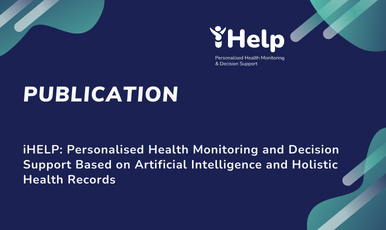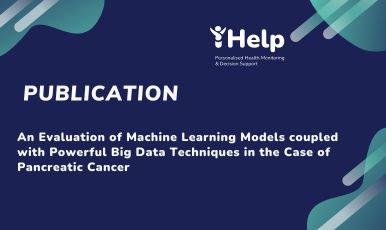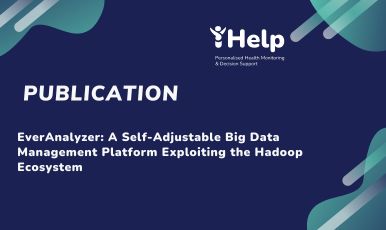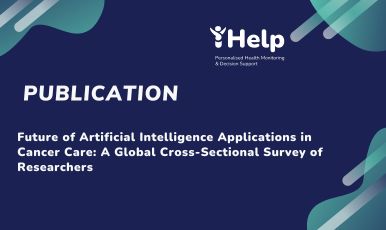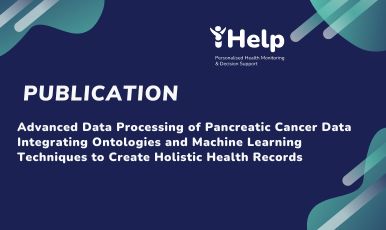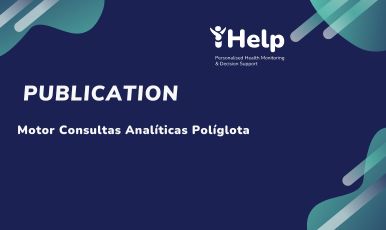TOPICS: Health management of chronic patients due to their risk of infection; Health patient monitoring.
SOURCE: IEEE ; Published: 2021 IEEE Symposium on Computers and Communications (ISCC)
iHELP: Personalised Health Monitoring and Decision Support Based on Artificial Intelligence and Holistic Health Records
George Manias 1 ; Harm Op Den Akker 2 ; Ainhoa Azqueta 3 ; Diego Burgos 3,4 ; Nikola Dino Capocchiano 5 ; Borja Llobell Crespo 6 ; Athanasios Dalianis 7 ; Andrea Damiani 5 ; Krasimir Filipov 8 ; Giorgos Giotis 7 ; Maritini Kalogerini 7 ; Rostislav Kostadinov 9 ; Pavlos Kranas 3,4 ; Dimosthenis Kyriazis 1 ; Artitaya Lophatananon 10 ; Shwetambara Malwade 11 ; George Marinos 1 ; Fabio Melillo12 ; Vicent Moncho Mas 6 ; Kenneth Muir 10 ; Marzena Nieroda 10 ; Antonio De Nigro 12 ; Claudia Pandolfo 12 ; Marta Patiño-Martinez 3 ; Florin Picioroaga 13 ; Aristodemos Pnevmatikakis 2 ; Shabbir Syed-Abdul 11 ; Tanja Tomson 14 ; Dilyana Vicheva 9 ; Usman Wajid 15
1 University of Piraeus, Piraeus, Greece
2 Innovation Sprint, Brussels, Belgium
3 Universidad Politecnica de Madrid, Madrid, Spain
4 LeanXcale, Madrid, Spain
5 Fondazione Policlinico Universitario Agostino Gemelli IRCCS, Rome, Italy
6 Hospital de Denia-MarintiSalud,Alicante,Spain
7 Athens Technology Centre, Athens, Greece
8 KODAR Systems,Plovdiv,Bulgaria
9 Medical University Plovdiv, Plovdiv, Bulgaria
10 University of Manchester, Manchester, United Kingdom
11 Taipei Medical University, Taipei, Taiwan
12 Engineering Ingegneria Informatica SpA,Rome,Italy
13 Siemens SRL,Brasov,Romania
14 Karolinska Institutet, Solna, Sweden
15 Information Catalyst for Enterprise, Northwich, United Kingdom
Abstract
Scientific and clinical research have advanced the ability of healthcare professionals to more precisely define diseases and classify patients into different groups based on their likelihood of responding to a given treatment, and on their future risks. However, a significant gap remains between the delivery of stratified healthcare and personalization. The latter implies solutions that seek to treat each citizen as a truly unique individual, as opposed to a member of a group with whom they share common risks or health-related characteristics. Personalisation also implies an approach that takes into account personal characteristics and conditions of individuals. This paper investigates how these desirable attributes can be developed and introduces a holistic environment, the iHELP, that incorporates big data management and Artificial Intelligence (AI) approaches to enable the realization of data-driven pathways where awareness, care, and decision support is provided based on person-centric early risk prediction, prevention and intervention measures.
Keywords: Holistic Health Records (HHRs); Pancreatic Cancer; Artificial Intelligence

